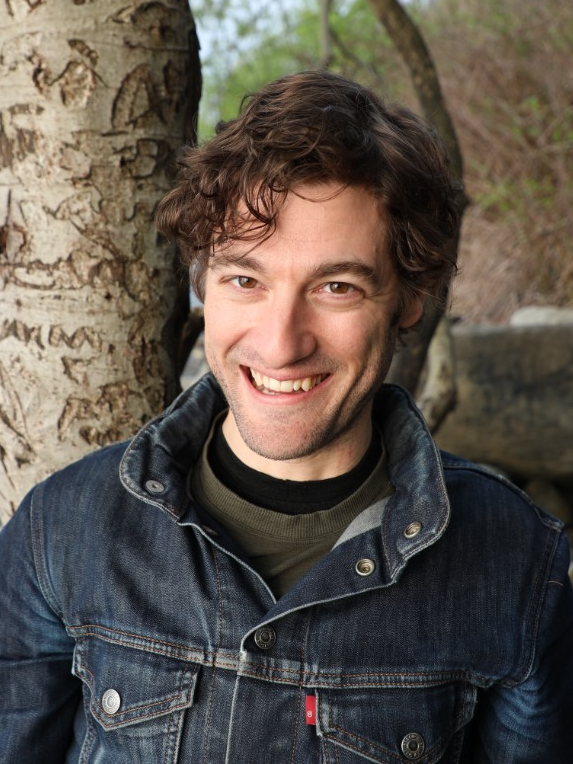- About
- People
- Undergraduate
- Graduate
- MA Programs
- PhD Programs
- Courses
- Graduate Studies Guide
- General Information
- MA in Sociology or Anthropology
- PhD in Sociology or Anthropology
- Committee Composition, Supervision and Choice of Topic
- Progress Reports
- Course Grade Appeals
- Graduate Student Offices, Computer Lab and Meeting Spaces
- Leaves and Withdrawals
- Applications for Program Extension
- Funding
- Graduate Student Association
- Current Graduate Students
- Forms
- Alumni
- Research
- News & Events

Nicholas Scott
Biography
Dr. Nicholas Scott’s research focuses on more-than-human sociology, mobility and ecology. He examines environmental crises, such as biodiversity collapse, mass extinction and roadkill, and their root causes––particularly human supremacism, the hegemonic fiction that places sapiens at the pinnacle of a natural moral hierarchy that configures other species as our exploitable property. His current work follows the sociotechnical and political production of human supremacism in North America, especially through urban sprawl and the system of automobility––including the greenwashing of the electric car. He also investigates moral and material antidotes and alternatives to human supremacism, such as multispecies democracy, interspecies justice, plant personhood and active travel.
Current possibilities for graduate supervision could include projects that theoretically and empirically investigate:
- relations between the system of automobility, mining and mass extinction
- mutually reinforcing linkages between social and interspecies injustice
- the role of sociology in perpetuating human supremacism––and emerging moral and political sociologies that include other-than-human persons and societies
- the complex origins and futures of human supremacism, from the early “wheat state” and settler-colonialism to hegemonic automobility and AI
- the role AI can play in facilitating multispecies communication and democracy
- relations between human supremacism and the far-right
- hopeful alternatives to human supremacism: e.g. multispecies democracy, including other-than-human citizenship and sovereignty; interspecies mobility justice; non-western formations of more-than-human kinship
- multispecies authoritarianism and multispecies fascism
- everyday practices that confront and de-habituate human supremacism, such as cycling, walking and rolling with nature in ways that spark our wonder for other-than-human beings as morally worthy and socially constructed persons
- cat citizenship and cats’ right to the city (and that of other domesticates and denizens)
- plant, animal and fungal personhood and political agency
- ethological experiments in reassembling community and prefiguring “the good multispecies city”
- de-roading: shifting from wildlife overpasses (bandaid solution) to unbuilding highways for private automobiles (structural solution)
- sociotechnical constructions of a decolonized “wilderness” and “nature” through public transit and longer distance active travel networks
- campaigns against flying and highway building
- campaigns for interurban rail travel and universal transit in Canada
Education
PhD, Sociology, Carleton University, Ontario
MA Sociology, Carleton University, Ontario
BA Hons., Sociology & Political Science, University of King’s College, Nova Scotia
Areas of Interest
More-than-human sociology; mass extinction; biodiversity loss; urban sprawl; the system of automobility; interspecies mobility justice; human supremacism; multispecies democracy; active travel; qualitative, quantitative and mixed methods
Select Publications
Books
- Assembling Moral Mobilities: Cycling, Cities and the Common Good (2020). Lincoln: University of Nebraska Press.
Peer-Reviewed Articles
- Scott, N. & Travers. (2023). “E-micromobility, Cycling, and ‘Good’ Active Travel.” Active Travel Studies 3(1).
- Travers, N. Scott, K. J. Reed, P. Hall, M. Winters, G. Kwan, & K. Park (2023). “Moral Panic and Electric Micromobilities: Seeking Space for Mobility Justice.” Sociological Perspectives, 0(0).
- Scott, N. (2022). “Longer Distance Cycling for Interspecies Mobility Justice in Canada.” Active Travel Studies 2(2): 1–16.
- Scott, N. (2020).“Where can cycling lift the common good? Regional political culture and fossil capitalism play a role,” Journal of Transport Geography, 86.
- Scott, N. (2020). “A political theory of interspecies mobility justice,” Mobilities.
- Scott, N. (2019). “Calibrating the go-along for the Anthropocene,” International Journal of Social Research Methodology, 23: (3) 317-328.
- Scott, N. and J. Siltanen. (2017). “Intersectionality and quantitative methods: assessing regression from a feminist perspective,” International Journal of Social Research Methodology, 20 (4): 373-385.
- Scott, N. (2016). “Cycling, Performance and the Common Good: Copenhagenizing Canada’s Capital,” Canadian Journal of Urban Research, 25: (1) 22-37.
- Scott, N. (2013). “Like a Fish Needs a Bicycle: Henri Lefebvre and the Liberation of Transportation,” Space & Culture, 16 (3): 397–410.
Edited Book Chapters
- Scott, N. (2022). “Against Environmentalism for the Common Good: A Theoretical Model.” In (eds.) David Tindall, Mark C.J. Stoddart and Riley E. Dunlap. Handbook of Anti-Environmentalism, Edgar.
- Scott, N. (2021). “City Cycling After COVID-19 for Interspecies Mobility Justice.” In (eds.) Rianne Van Melik, Pierre Filion, and Brian Doucet. Global Reflections on COVID-19 and Urban Inequalities: Volume 3: Public Space and Mobility, Bristol University Press.
- Scott, N. (2021). “New wilderness mobilities: Cycling against climate change, mass extinction and habitat destruction.” In (eds.) Dennis Zuev, Katerina Psarikidou and Cosmin Popan. Cycling Societies: Innovations, Inequalities, and Governance, Routledge.
- Vannini, P. and Scott, N. (2020).“Mobile ethnographies of the city.” In (eds.) Ole B. Jensen, Claus Lassen, Vincent Kaufmann, Malene Freudendal-Pedersen and Ida Sofie Gøtzsche Lange. Handbook of Urban Mobilities, Routledge.
- Scott, N. (2019). “Ecologizing Lefebvre: Urban Mobilities & the Production of Nature.” In (eds.) Michael E. Leary-Owhin and John P. McCarthy, Handbook of Henri Lefebvre, the City and Urban Society, Routledge.
- Scott, N. (2012). “How Car-Drivers Took the Streets: Critical Planning Moments of Automobility,” In (eds.) Phillip Vannini, Paola Jiron, Ole B. Jensen, Lucy Budd, and Christian Fisker, Technologies of Mobility in the Americas, Peter Lang Publishing.
Journal Editorials
- Sodero, S. and N. Scott. (2016). “Contentious Mobilities,” Canadian Journal of Sociology 41 (3): 257-276.
- Davidson, T. and N. Scott. (2016). “Ottawa Studies,” Canadian Journal of Urban Research 25 (1): 1-7.
Media & Events
- Scott, N. “Cycling is a tool for physical distancing – and a way to put our fragmented cities back together” in The Globe and Mail, May 1, 2020.

